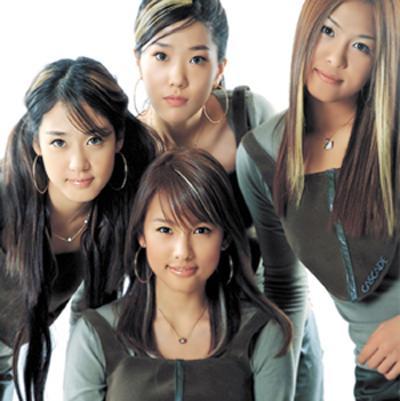| Useful WEBSITES for Mandarin Chinese Learners | |
|---|---|
| Dec 6, 2007 01:26 | |
 | Hi all There's a lot of us here learning Chinese, whether seriously or just dabbling. There's also a lot of online resources that I'm sure we are all using. I thought it would be a good idea to pool all our "favourite" websites on one thread; help each other and those new to learning the language. So please post below websites that you love. Those that you use often or find invaluable, specifically related to learning the language. I want to share two websites that I use a lot: 1. www.chinesepod.com This is a fabulous resource every Chinese learner should know about. Podcasts at every level from beginner to very advanced. No need to subscribe and pay if you don't want to. Sign up for the free trial and after your subscription expires you can continue on a basic membership for free which still allows full access to all the podcasts, notes and exercises. 2. http://comet.cls.yale.edu/ This is theory dense and for those more serious about their studies. Useful examples and explanations in English of how to use some of the more confusing grammar components: eg 了 and 把. LC :) |
| Dec 6, 2007 02:15 | |
 | Thanks LC, Appreciate the comet site especially the le marker words. I have found this one of the most confusing grammatical points of Chinese because it is used for so many different things but if you have some idea what they imply, then it's all very clear. I'll try the pod cast later. I'm not using any other websites at present. I have flash cards in Hanzi and pinyin and my Pleco Dictionary which is a big plus especially out on the street. |
| Dec 7, 2007 01:06 | |
 | Jabarootoo... I know exactly what you mean. 了 may be the simplest character to write, but trying to use it drives me crazy... |
| Dec 7, 2007 01:23 | |
 | LC I've been looking more at the rest of the lessons too and I'm ever so grateful that you have shared this with us. There is just so much stuff here that is so wonderfully explained. Now to spend some time working of each of the areas and begin to practice what has up till now been too confusing. It's a good place to pick up basic action verbs and to understand how to use them properly. Highly recommend this as there is Audio, Hanzi, Pinyin and English so it suits almost any level. I'm trying to learn to recognize more characters to is is great for that. Thanks again |
| Dec 15, 2007 21:45 | |
 | Ooops. Sorry Jabarootoo but I want to clarify that if you want to use the notes and exercises you will need to subscribe to the premium membership. With the basic "free" membership you only get access to the podcasts themselves. |
| Dec 17, 2007 14:53 | |
 | LEMONCACTUS -- Why does "le" drive you crazy? Can you give me some examples? I'm interested in knowing because I am a heritage speaker and I find it interesting what people learning the language have difficulties in. I have studied Japanese as well, and I found many interesting parallels because Chinese and Japanese. I also take Chinese writing/reading classes with non-heritage speakers and I try to understand some of the things they are having trouble with in class. It's very interesting! - moondollars faithvine.com |
| Dec 23, 2007 09:24 | |
 | as far as 了goes, even in short phrases you might hear 他举了手 but as an English speaker, you are inclined to think 举手了 or at least I am. Perhaps I am expressing it wrong, but I have a hard time figuring out when the 了 particle belongs anywhere other than at the end of a sentence... I've just taken to using it like pepper, not too much, but maybe more than is necessary. |
| Dec 24, 2007 00:30 | |
 | 哈哈!I like the pepper comment! The general rule of thumb is if: 了 directly proceeds a verb then the 了 particle is used to indicate the completion of that verb 我吃了晚饭。 I Ate Dinner When used at the end of the sentence it indicates a change in state, which has generally occurred in the past however don't confuse yourself thinking that 了 is a past tense marker. 我吃晚饭了。 I have eaten dinner (before I hadn't, now I have) So basically if you are expressing that you just finished doing something use 了 after the verb. However if you wish to express the change in state then use 了 at the end of the sentence. It can also be used in both places, which makes sense if you were discuss something that you'd A)just finished doing and B)as a result of doing it, something changed That is my general understanding but would I appreciate correction if that is not accurate. |
| Dec 24, 2007 01:22 | |
 | Yep. 了 is very often used to indicate the completion of something or as the past tense in English. Glad to know that you guys are discussing the language here, and i'm extremely willing to help others with Chinese, and make true friends. Welcome to contact me: Skype name: jacklee3721 or Email me: sina.com|jacklee1028 I can teach you one Chinese sentence each day at least. lol. |
| Dec 24, 2007 02:20 | |
 | Heh, I also have wondered about using 了. I have Finnish-Chinese cd lessons, in which things are explaned in Finnish, but not very understandable way. After reading Your text, Nick, I went to my lessons and....understood what that woman said in cd. Thanks. Carlos |
| Dec 24, 2007 05:55 | |
 | 非常好! 我们可以互相帮助。 |
Page 1 of 2 < Previous Next > Page:
Post a Reply to: Useful WEBSITES for Mandarin Chinese Learners











 Copyright © 1998-2026 All rights reserved.
Copyright © 1998-2026 All rights reserved.